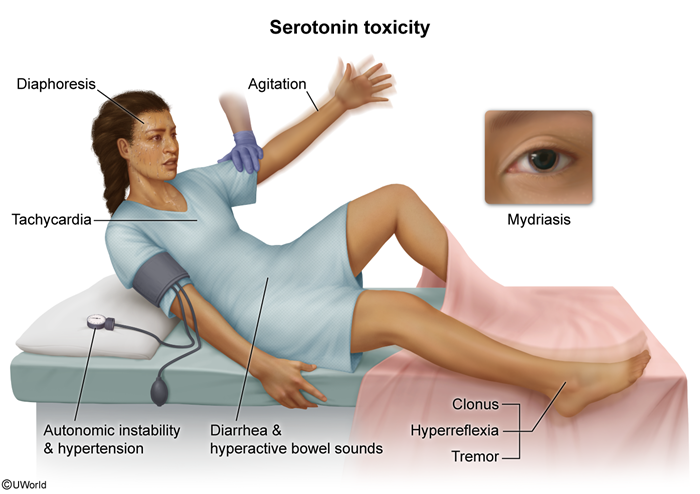Tricyclic Antidepressants
Article Sections
Introduction
Tricyclic antidepressants (TCAs) inhibit serotonin and norepinephrine reuptake and are effective in the treatment of depression as well as other psychiatric and medical conditions. TCAs affect additional neurotransmitter systems, resulting in characteristic adverse effects, and can be fatal at relatively low doses (ie, narrow therapeutic index).
Mechanism of action
TCAs inhibit the reuptake of serotonin and norepinephrine at the synaptic cleft. This increase in serotonin and norepinephrine concentration may result in therapeutic effects on mood and pain. In addition to serotonin and norepinephrine reuptake blockade, TCAs block histamine, muscarinic, and alpha-adrenergic receptors.
Structure
"Tricyclic" in TCA refers to its chemical composition: a three-ring central structure with an accompanying side chain. Depending on the type of side chain present, TCAs can be categorized as:
Continue Learning with UWorld
Get the full Tricyclic Antidepressants article plus rich visuals, real-world cases, and in-depth insights from medical experts, all available through the UWorld Medical Library.
Unlock Full AccessFigures
